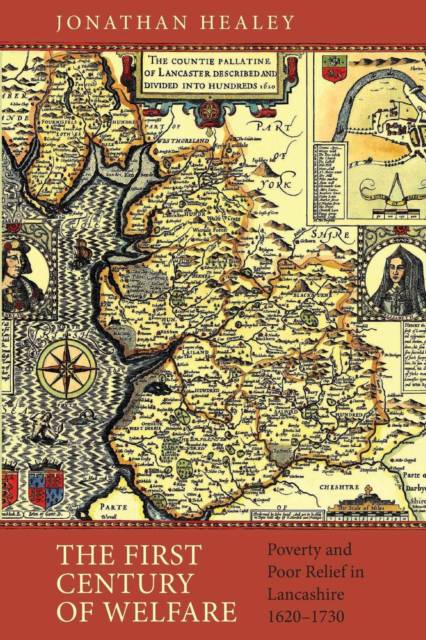
- Afhalen na 1 uur in een winkel met voorraad
- Gratis thuislevering in België vanaf € 30
- Ruim aanbod met 7 miljoen producten
- Afhalen na 1 uur in een winkel met voorraad
- Gratis thuislevering in België vanaf € 30
- Ruim aanbod met 7 miljoen producten
Zoeken
€ 59,95
+ 119 punten
Omschrijving
The first major regional study of poverty and its relief in the seventeenth century: the first century of welfare. The English 'Old Poor Law' was the first national system of tax-funded social welfare in the world. It provided a safety net for hundreds of thousands of paupers at a time of very limited national wealth and productivity. The First Century of Welfare, which focusses on the poor, but developing, county of Lancashire, provides the first major regional study of poverty and its relief in the seventeenth century. Drawing on thousands of individual petitions for poor relief, presented by paupers themselves to magistrates, it peers into the social and economic world of England's marginal people. Taken together, these records present a vivid and sobering picture of the daily lives and struggles of the poor. We can see how their family life, their relations with their kin and their neighbours, and the dictates of contemporary gender norms conditioned their lives. We can also see how they experienced illness and physical and mental disability; and the ways in which real people's lives could be devastated by dearth, trade depression, and the destruction of the Civil Wars. But the picture is not just one of poor folk tossed by the tidesof fortune. It is also one of agency: about the strategies of economic survival the poor adopted, particularly in the context of a developing industrial economy, of the support they gained from their relatives and neighbours, andof their willingness to engage with England's developing system of social welfare to ensure that they and their families did not go hungry. In this book, an intensely human picture surfaces of what it was like to experience poverty at a time when the seeds of state social welfare were being planted. JONATHAN HEALEY is University Lecturer in English Local and Social History and Fellow of Kellogg College, University of Oxford.
Specificaties
Betrokkenen
- Auteur(s):
- Uitgeverij:
Inhoud
- Aantal bladzijden:
- 335
- Taal:
- Engels
- Reeks:
- Reeksnummer:
- nr. 4
Eigenschappen
- Productcode (EAN):
- 9781843839569
- Verschijningsdatum:
- 18/09/2014
- Uitvoering:
- Paperback
- Formaat:
- Trade paperback (VS)
- Afmetingen:
- 156 mm x 234 mm
- Gewicht:
- 471 g

Alleen bij Standaard Boekhandel
+ 119 punten op je klantenkaart van Standaard Boekhandel
Beoordelingen
We publiceren alleen reviews die voldoen aan de voorwaarden voor reviews. Bekijk onze voorwaarden voor reviews.











